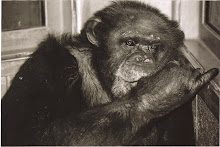Standing up to PPI/FoA Primate Abuse
Emma at Chimps, Inc.

Recently a lawsuit was filed against PPI to prevent the return of animals to the substandard hoarding facility in TX. Chimp Inc. IPPL (who rescued the gibbons) and another individual (who rescued a steer) are seeking to prevent PPI/FoA from harming the rescued animals.
PPI/FoA has sent letters to all the animal rescuers demanding they return the animals to PPI or risk being sued. These threats and other statements made by the unfit management of PPI makes it clear that they do not have the interests of animals as their top priority. Those running PPI complain that they are being unfairly attacked. Sadly, this complaint reveals part of the problem. This is not about them, it is about the well-being of the primates they pledged to care for and instead betrayed.
As PPI/ FoA attempt to have their “property” returned to them one has to wonder why 20 animals are being singled out. Perhaps it is because they think they can use these animals for fund-raising. Or maybe they are trying to make a political point.
But using chimpanzees and other animals for one’s own agenda contradicts what FoA was supposed to be committed to, ending animal use. Moving the animals back to PPI constitutes abuse. Why did FoA become an institution of animal use and abuse?
Everyone who knows even just a little bit about chimpanzees recognizes that they are highly sensitive and intelligent individuals who remember the places where they were harmed and the faces of those who abused them. Transport itself is deeply distressing. Since Darrell, Sarah, Sheba, Keeli, Ivy, Harper, Emma, and Jackson and Emma are being well cared for now, why is PPI/FoA threatening to subject them to trauma, stress, and emotional pain? Lee Hall on behalf of PPI/FoA claims they are not doing this lightly. But why do it at all? It is not in the best interest of any of the animals.
If PPI/FoA really cared about animals, as they used to claim to, they would thank the rescuers and get on with the task of caring for the hundreds of animals they now hold captive.

